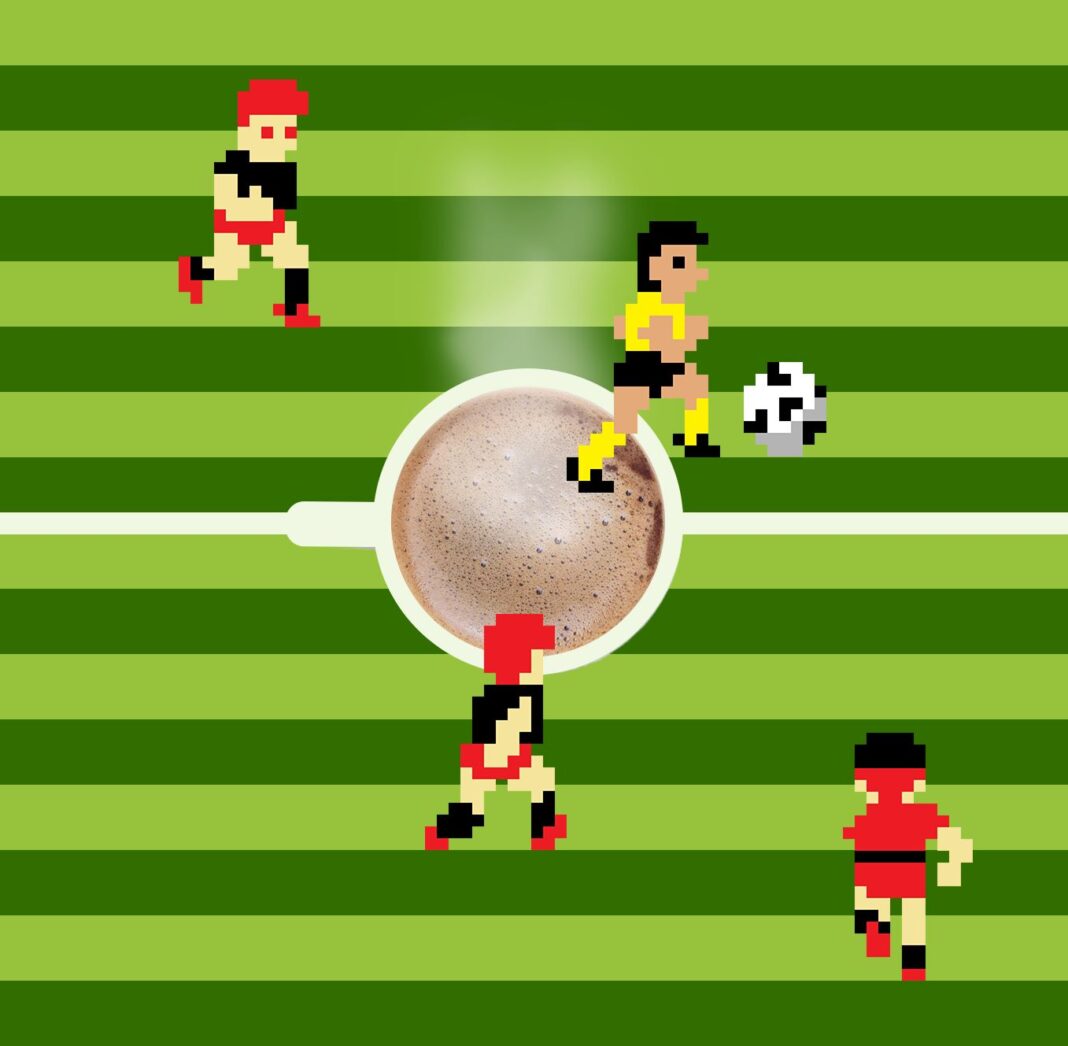Caffeine highs and lows footballers should be aware of. Researchers and coaches often use objective and subjective methods to quantify players’ performance. Caffeine is one of the most popular dietary supplements, which has been shown to provide benefits during intermittent exercises, including soccer.
These effects are attributed to caffeine’s ability to block adenosine receptors, which enhances neuromuscular recruitment and can improve sprint performance and countermovement jumping. In a new study, scientists at Staffordshire University and Shiraz University aimed to understand the effects of caffeine on decision-making and the accuracy of soccer passes. They found that consuming caffeine before a game improves the accuracy of football passes.
However, it hurts more tactical play involving a higher number of passes. Dr Pooya Soltani, Senior Lecturer in Games Technology at Staffordshire University, explained, “The effects of caffeine on “higher” cognitive functions such as problem-solving and decision-making are often debated, so we decided to investigate this. ” Twelve teenage football players, ages 16 to 17, participated in exercises designed to investigate the effects of caffeine on passing accuracy and decision-making.
In addition to completing five 10- and 30-meter passes, the participants completed the Loughborough Soccer Passing Test, which evaluates passing, dribbling, control, and decision-making abilities. After that, the researchers employed a computer assignment to gauge participants’ decision-making skills in various gaming scenarios. They had to choose the optimal course of action from ten simulated, previously recorded occurrences.
Once after ingesting 3 mg/kg body mass of caffeine and once after consuming comparable amounts of placebo, the individuals finished the tasks. When the soccer players drank caffeine, they were better at short passes (1. 67% more accurate) and significantly better at long passes (13.
48% more accurate) compared to when they had a fake treatment (placebo). However, their decision-making was a bit worse (7. 14% lower), and their scores in the Loughborough Soccer Passing Test were a bit lower too (3.
49% lower) when they had caffeine compared to the fake treatment. Negar Jafari, from Shiraz University, said: “While the short pass accuracy remained consistent among almost all participants before and after caffeine consumption, the performance varied in the case of long passes. Moreover, most participants scored lower on decision-making and the Loughborough Soccer Passing Test after consuming caffeine.
This may suggest that more complex tasks with a higher number of passes might negatively be affected by low doses of caffeine ingested one hour before playing. ” The study does not suggest that footballers should avoid caffeine entirely and recommends further research into its effects on decision-making in the game. Dr.
Soltani commented , “During a football match, players must process various cues such as opponents’ positions, team organization, and time pressure. Decision-making in passing is critical, where a well-executed pass can create scoring opportunities. ” “Our findings show that this can be affected by caffeine intake, and coaches may find these performance metrics useful to explore in training.
Several parameters can be involved – the dosage of caffeine relative to body weight, the frequency of caffeine intake, and certain positions of the players or their playing styles. For example, a slight decrease in pass accuracy might be crucial for a midfielder but less impactful for a goalkeeper. ” Journal Reference:.
From: techexplorist
URL: https://www.techexplorist.com/caffeine-adversely-affect-decision-making-abilities-football-players/78431/#utm_source=rss&utm_medium=rss&utm_campaign=caffeine-adversely-affect-decision-making-abilities-football-players



